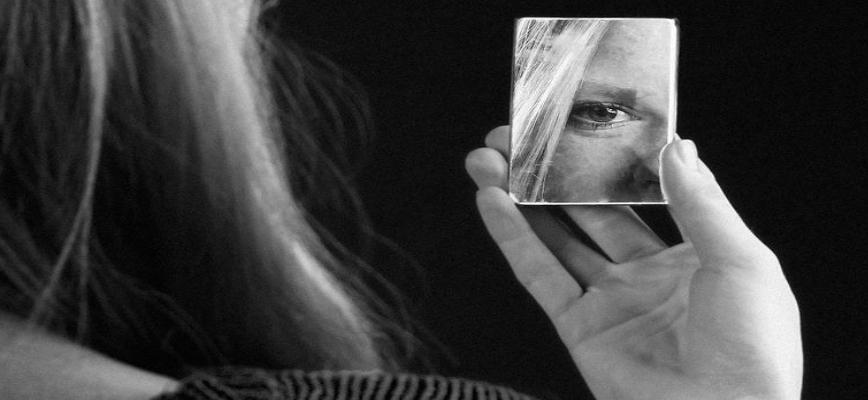We are all so accustomed to using a mirror everyday, probably more than is actually needed. Added to that there are many of us that will glance in every shiny surface we encounter throughout our day. Shop windows, glass display cabinets and TV’s can make even the most timid of individuals take a quick sideways glance to check their appearance. But why?
Just how often do we look in the mirror?
Research shows that some of us look in the mirror up to 70 times a day, yes really!
That sounds a little high to me, does anyone actually have that much time just to look at themselves? I am more likely to be in agreement with the research that suggests we look between 8 and 10 times per day, but that does exclude selfies.
Why do we look so often?
Vanity? I am not so sure. It is quite understandable that we are concerned about our appearance, particularly as there is evidence that we are likely to be more successful in modern society simply because of how we look.
It’s not right, but we all have to admit that attractive children always seem more popular, not just with their peers but with adults in influential roles too. This generally means that they get better academic results and opportunities.
Looking “just right” is more likely to get you your dream job too. Attractive people earn higher salaries and have a higher rate of success when applying for jobs.
In general we all act more favourably to attractive people and looking in the mirror so much helps on the way to being that attractive, successful person.
Is this really necessary and is it good for you?
It appears not. The longer that we gaze at ourselves in the mirror the more psychological harm it does.
Spending a lot of time in front of the mirror can make us depressed and anxious about our looks. This is true for even those of us that are generally happy with the way we look.
So is it time to give the mirror a rest? It does sound like a good idea but what effect will it have?
What is the No Mirror Challenge?
For those not yet familiar with the no mirror challenge, this challenge also known as mirror fasting is a recommended and restorative activity for your mental health.
Simple to conduct and complete, a mirror fast is the challenge of avoiding looking at your reflection in the mirror. The duration of the fast is entirely up to you and can last a day, a week or even a year.
Hailed by bloggers for its numerous benefits, many recommend the no mirror challenge as a way to view and discover their inner being more clearly.
Why mirror fast?
So what are the benefits of foregoing gazing into our illuminated led mirror? It is easy to see the physical downside. Poorly applied makeup, overgrown eyebrows and people glaring at your spots, that you didn’t even know you had.
Apparently it takes your focus away from your appearance and other people’s perceptions of you. It also reduces the amount of negative thoughts you have about yourself and your body image.
Saying that, it can also be argued that deciding to give up something that is featured in your everyday life can make you obsess over it even more. A bit like going on a diet. As soon as you know you’re not allowed to something you want it more.
Does it help?
For those that have tried it they report seeing themselves in a new light after a break from their reflection, which can only help with self esteem. Surely this must be the purpose of mirror fasting? Here are some other reported benefits of mirror fasting:
- Learning not to pass judgement on yourself when looking in a mirror and to have a more positive view of yourself.
- If you need to use a mirror to constantly adjust your clothing it is probably something that you shouldn’t own in the first place.
- Reducing the amount of importance placed on how you look makes you look and feel more confident.
- You stop caring so much about what other people think, allowing you time to get on with the more important things in life.
- You rely on other people telling you how you look, who probably have a completely different perspective to you and usually a more positive one. They may even like something about you that you don’t, which can only boost your confidence.
Are there any benefits of looking at yourself in the mirror?
Before we can begin reducing the amount of time that we look at ourselves in the mirror, first we must question, are there any benefits of looking at yourself in the mirror? Research has found that there are in fact a number of benefits to taking the time to look at our reflection in the mirror.
Conducted from a psychology and neuroscience perspective, benefits of looking at ourselves in the mirror can be seen in a deeper sense of self, while also helping to make us less socially awkward.
These benefits can help us to communicate more comfortably with others through this simulated and face to face interaction that we have with ourselves daily.
Research also conducted found that the longer participants didn’t look into the mirror at themselves, the more socially awkward they became, avoiding social situations altogether. Evident that a small time every now and then, looking at our reflection in the mirror can be beneficial for our mental health.
Wrap Up
Not using a mirror and conducting mirror fasting also highlights how judgemental we are of others and how our first impressions are often based on looks. A new outlook helps us pay more attention to this and reflect on those impressions.
If you are looking in your led mirror every day and telling yourself that your hair is lank, you nose is too big, your teeth are crooked and you have spots maybe a mirror fast is what you need to ditch this negativity and renew some self esteem and confidence.
Is a mirror fasting something that you would try?

